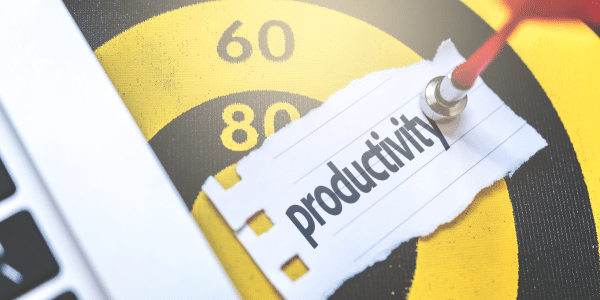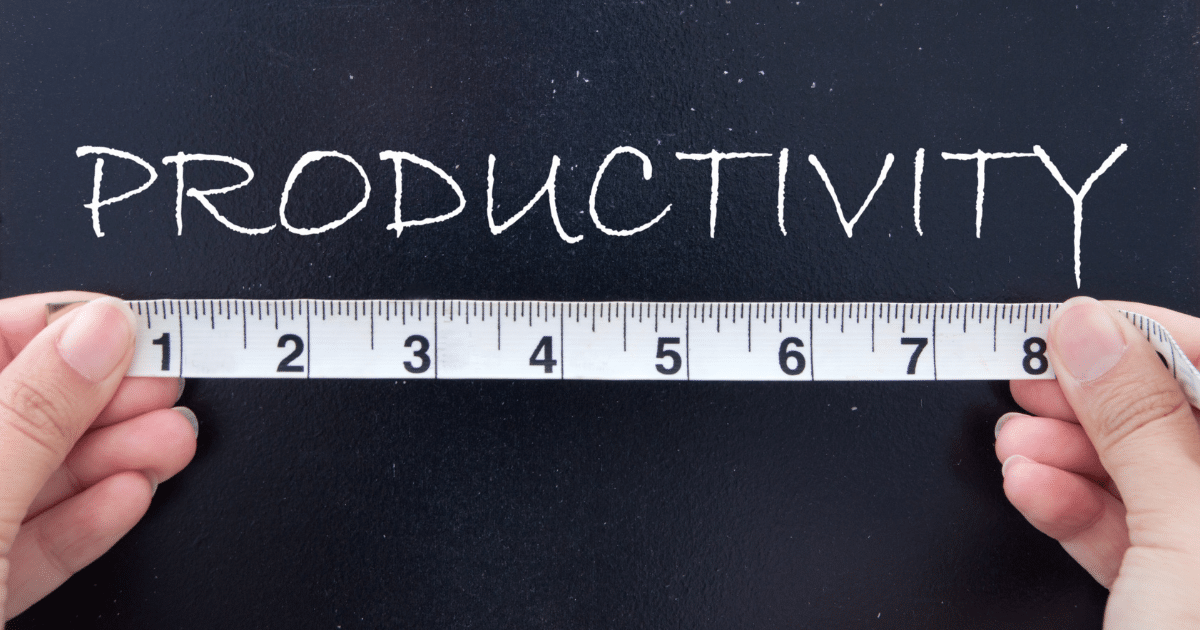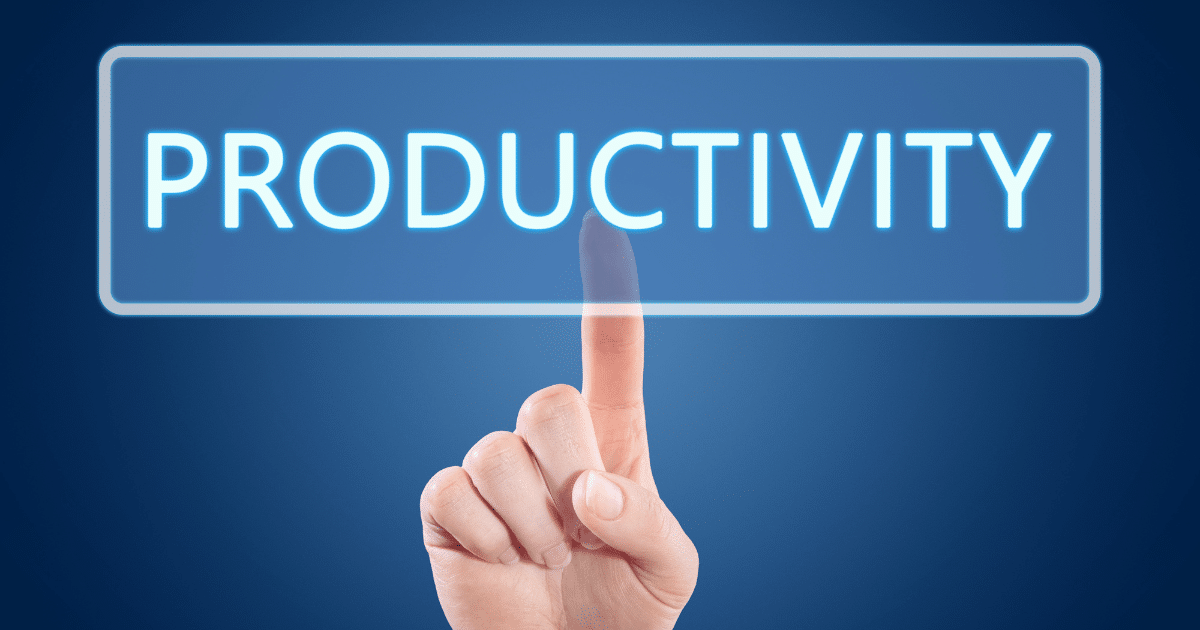
Productivity is the lifeblood of any successful business. Whether you’re an employee trying to impress your boss or an entrepreneur aiming to make the most of your day, the ability to increase productivity at work is a universal goal.
In this article, we will explore ten effective ways to boost your productivity and achieve better results in the workplace. These strategies apply to a wide range of professions and industries, so whether you work in an office, a factory, or from home, you’ll find something valuable to take away.
Related Article: Beyond 9 to 5 — Redefining Success Through Work-Life Balance
Increase Productivity at Word with These 10 Tips
If you want to get the most out of your time at work, read over these 10 ways to increase productivity and get more done. The last thing you want to do is waste time. You can buy a lot of things, but you can’t buy more time. So, maximize every second you get.
1. Prioritize and Plan
One of the foundational principles of productivity is effective time management. Start your workday by setting clear goals and priorities. A to-do list can be your best friend in this regard. Make a list of tasks and rank them in order of importance. Focus on tackling high-priority tasks first, as these are usually the most crucial and time-sensitive. Planning your day will help you stay on track and prevent you from feeling overwhelmed.
2. Time Blocking
Time blocking is a technique that involves breaking your workday into distinct blocks of time dedicated to specific tasks. This approach allows you to allocate time efficiently, prevent multitasking, and maintain your focus on one task at a time. For example, you can block out the morning for creative work, the afternoon for meetings, and the late afternoon for administrative tasks. By creating these time blocks, you’re more likely to complete tasks in a systematic and organized manner.

You could even use your time traveling to work to your advantage if you aren’t physically operating a vehicle. Use your travel time to work productively.
3. Set SMART Goals
SMART goals are Specific, Measurable, Achievable, Relevant, and Time-bound. By setting SMART goals, you give yourself a clear path to follow. Instead of a vague objective like “finish the project,” a SMART goal might be “complete the first draft of the project proposal by 3 PM today.” This approach not only clarifies your intentions but also makes it easier to track your progress and stay motivated.
4. Minimize Distractions
Distractions can be productivity killers, and they come in various forms: social media, smartphones, office gossip, and even your own thoughts. Identify your personal distractions and take steps to minimize or eliminate them. You might use website blockers to limit access to distracting sites, turn off notifications on your phone, or create a quiet workspace where you can concentrate without interruptions. Remember, it’s not about eliminating every distraction but reducing their impact on your work. If you’re easily distracted, you could try something like noise-canceling headphones or playing white noise through your headphones.
5. Time Management Techniques
Several time management techniques can significantly enhance productivity. Two popular methods are the Pomodoro Technique and the 2-Minute Rule. The Pomodoro Technique involves working for 25 minutes and then taking a 5-minute break. This approach minimizes burnout and helps maintain focus. The 2-Minute Rule suggests that if a task takes less than 2 minutes to complete, do it immediately rather than procrastinating. These techniques can be invaluable in your quest for increased productivity.
6. Automate and Delegate
Work smarter, not harder. Embrace automation and delegation to free up your time for more important tasks. Use productivity tools and software to automate repetitive and time-consuming processes. Delegate tasks to capable colleagues or employees when you have the opportunity. By doing so, you can ensure that your energy and attention are focused on the tasks that truly require your expertise.

7. Take Regular Breaks
Contrary to the misconception that working long hours without breaks leads to higher productivity, taking regular breaks is essential for maintaining focus and energy levels. The human brain is not designed for continuous, unbroken work. Short breaks, ideally every hour, can help you recharge and return to your tasks with increased efficiency and creativity. Use these moments to stretch, go for a walk, or simply relax for a few minutes.
8. Continuous Learning
Stagnation is the enemy of productivity. Keep your skills up to date and your mind engaged by pursuing continuous learning. Whether it’s taking courses related to your field, attending workshops, or reading books, investing in your personal and professional growth can lead to better problem-solving and innovative thinking. A well-rounded, informed individual is often a more productive one. You can also take a lot away from our toolkit that we wrote about.
9. Maintain a Healthy Work-Life Balance
Productivity isn’t just about doing more work; it’s about doing meaningful work efficiently. A healthy work-life balance is crucial for long-term productivity. Overworking can lead to burnout, decreased performance, and health issues. Set clear boundaries for your work hours, and prioritize time for your personal life, family, and relaxation. A balanced life can help you return to work with a refreshed mind and higher energy levels.
10. Stay Organized
A cluttered workspace and disorganized schedule can hinder your productivity. Make it a habit to keep your physical and digital workspace organized. Use tools like calendars, task management apps, and cloud storage to ensure that you have quick and easy access to the resources you need. Organization can save you valuable time and reduce stress in your work life.

Start Making the Changes Today to Increase Productivity
Increasing productivity at work is a goal that many of us share, and these ten strategies can help you achieve just that. By prioritizing and planning your day, employing time-blocking techniques, setting SMART goals, minimizing distractions, and practicing effective time management, you can lay the foundation for a more productive work life.
Related Article: Can Nootropics Boost Your Productivity and Business Growth?
Don’t forget the power of automation and delegation to free up your time and energy for critical tasks. Taking regular breaks, pursuing continuous learning, maintaining a healthy work-life balance, and staying organized are additional keys to success.
Remember that productivity isn’t about cramming more work into your day; it’s about working smarter, not harder. By implementing these strategies and tailoring them to your specific needs and preferences, you can enhance your efficiency, reduce stress, and achieve better results in your professional life.
Disclaimer: Some of the links in this article may be Amazon affiliate links and provide us with a very small commission. This does not affect the price on your end, but should you decide to make a purchase, we appreciate your support.
